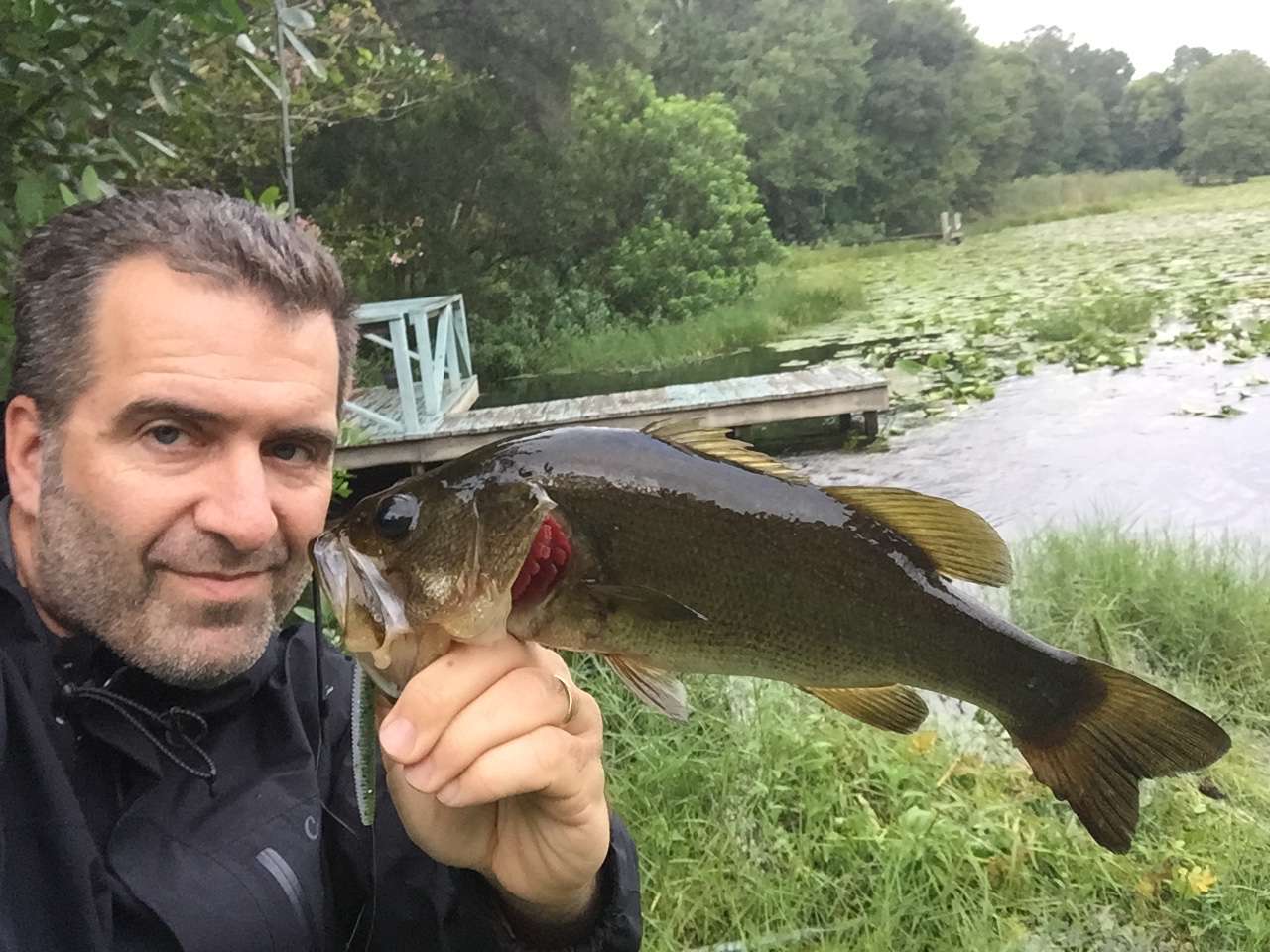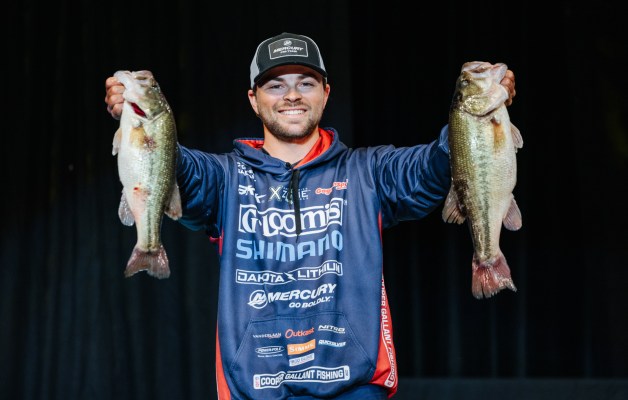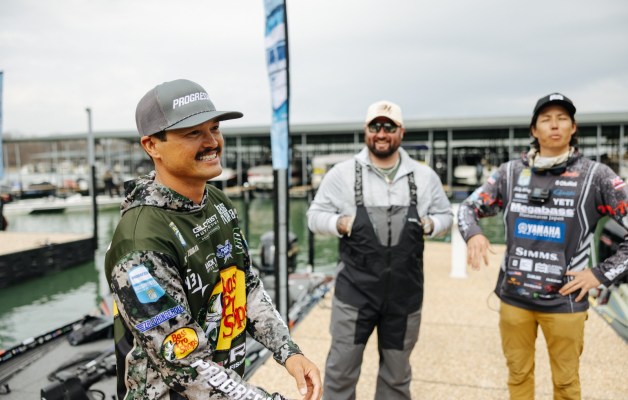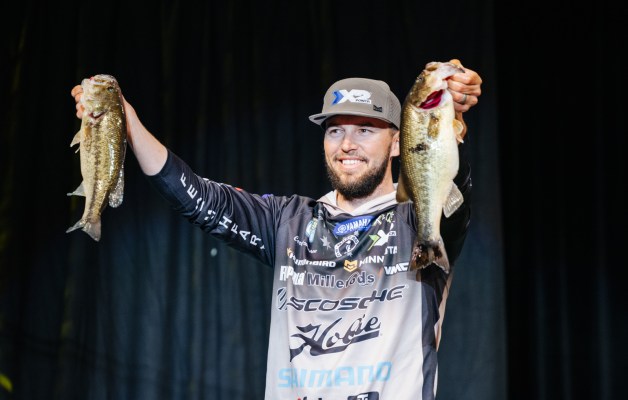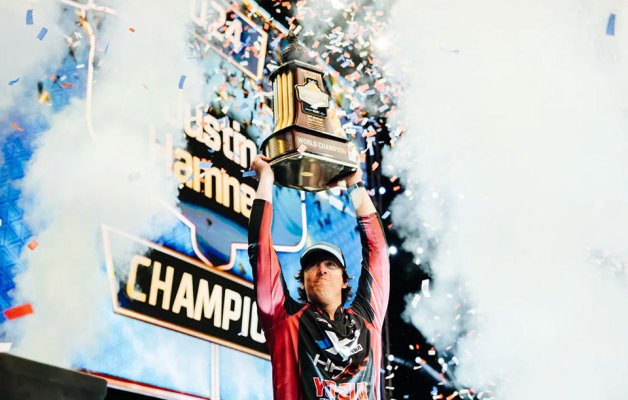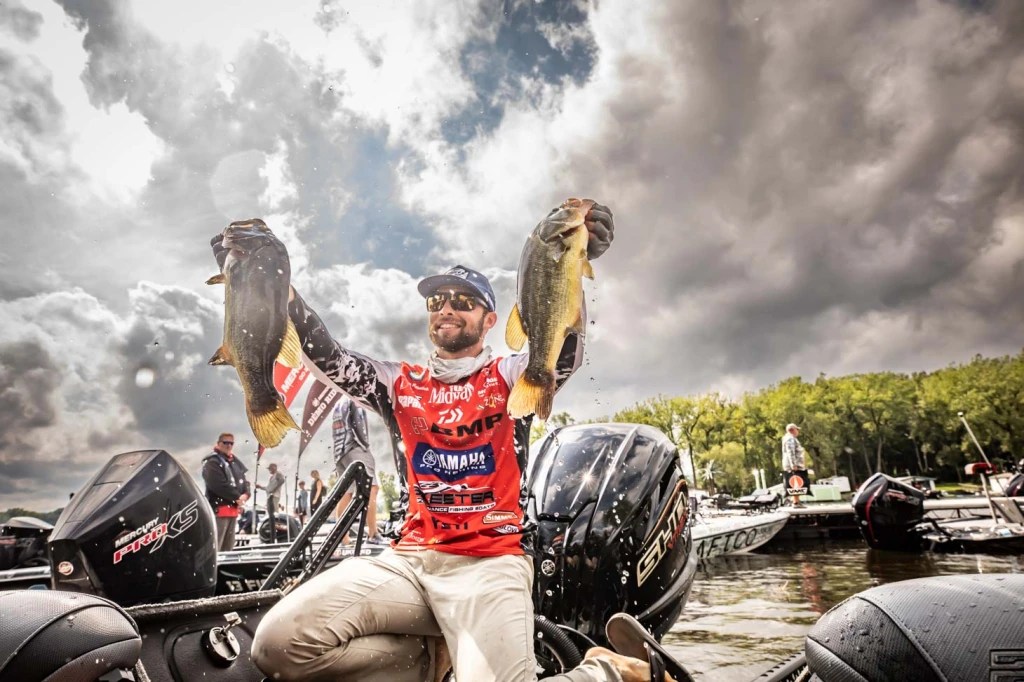
Dates are important, but seasonality is what largely governs fishing outcomes. The 53rd Academy Sports + Outdoors Bassmaster Classic presented by Toyota is scheduled for March 24-26, but four days before the event commences, we mark the vernal equinox — the first day of spring.
This is a wonderful season, full of newness and life, but spring in the South can be one fickle creature. Week-to-week weather fluctuations are nearly the assumption, but even with a rare stretch of completely stable weather, Classic qualifiers will write their practice plans in pencil, not ink.
Reigning Bassmaster Angler of the Year Brandon Palaniuk puts it this way: “In that part of the country that time of the year, it could be snowing and in the 30s, or it could be 70 and sunny.”
So, what does this mean to the competitors seeking the sport’s most prestigious title? Well, everyone processes differently, but none can or will escape this reality: What you find, may not be what you fish.
Classic anglers conclude their official practice period (Friday-Sunday) five days before the event starts. Then comes Classic Week, with several meetings, dinners, Night of Champions and media interactions. One final practice session the Wednesday prior to the tournament’s Friday start offers a final look at Classic waters.
This disjointed practice schedule, along with the optional pre-practice (prior to the Jan. 1 off limits), requires a calculated approach that’s heavy on looking and light on commitment.
Put it this way, Media Day, the Thursday before each Classic, finds about half the field admitting that they’re still pondering where they’ll start the following morning.
In fairness, the event’s grandeur, plus the atypical practice schedule often requires more contemplation than most events. It’s a lot to mentally assemble during what is, for most, their year’s pinnacle experience.
You can’t fully understand it unless you live it, so we asked a few of this year’s Classic qualifiers for their practice/pre-practice perspectives.
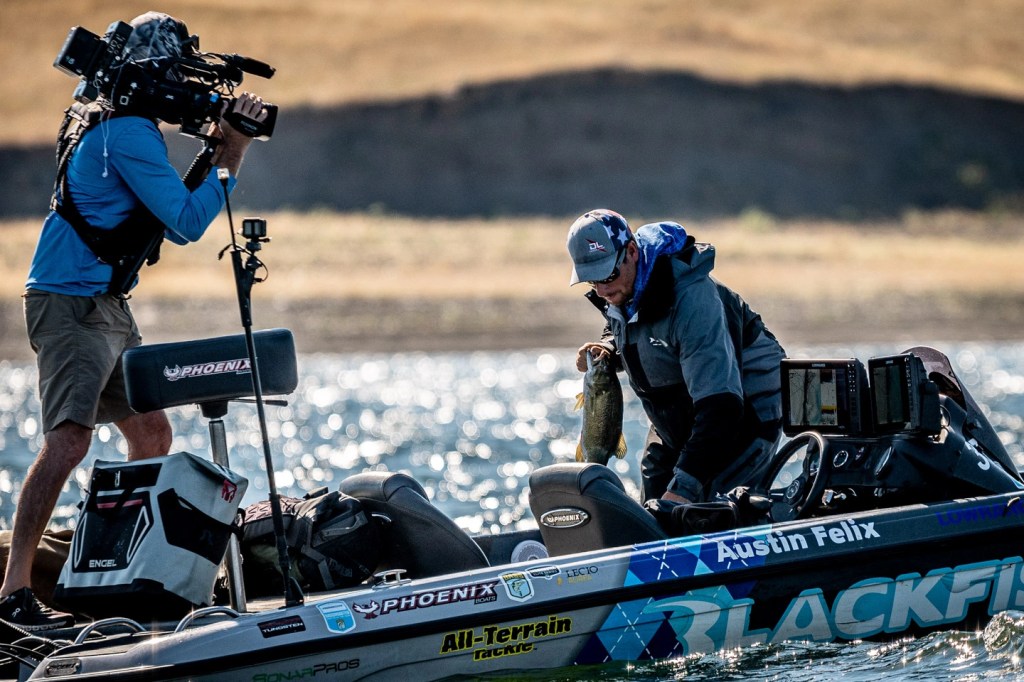
An early look
With the second event of the 2021 Elite season (late February) visiting the same waters that will host the Classic, several competitors like Palaniuk and Brandon Cobb, said they decided to forego any pre-practice. You can never know too much about a fishery, but recent exposure provides the baseline knowledge from which game plans will be formed.
Austin Felix, who won his first Elite trophy last year on Lake Oahe, visited Classic water prior to off limits. Stopping on his way home from the St. Croix Bassmaster Southern Open on Lake Hartwell, Felix spent most of his time at the lower end of Fort Loudoun, where he tried to expand on what he fished in 2021.
“The water was a lot higher than when we’re going to be there, so I graphed a lot of relatively shallow stuff just to find hard cover that wouldn’t move around,” Felix said. “The way the Jeff Gustafson won in 2021 (Damiki rigging deep rocks in the canal between Loudoun and Tellico), made it necessary to also look out deeper to see if I could find any more structure like that.
“It’s not easy to find any of that jagged boulder stuff, except the one area where Gussy was fishing by the (U.S. Hwy. 321) bridge. Since we’re going to be there later (than the 2021 Elite), there’s a good chance there’s going to be more fish pushing up, so I spent a lot of time looking in 12 feet or less, which will be 4 to 8 during the Classic.”
Noting that he never made a cast during his pre-practice trip, Felix said he had initially planned to spend two days scouting, but he pulled the plug early. Conditions and fish movement will change much by Classic time, so he was simply looking for starting points.
“I didn’t see that there was a ton of productive water that I hadn’t graphed already,” he said. “I wouldn’t say I found a lot of new spots, but I graphed a little father into the creeks to see where the hard structure is so I know where to point my Lowrance ActiveTarget in the Classic.”
(Practice) separation anxiety
Looking ahead to the Classic schedule, Felix said the amount of time between official practice days and the actual event requires a strategic balance of discernment and flexibility.
“The time of year the Classic is scheduled, everything changes really fast, so you have to be really fluid,” Felix said. “I tend to look at as much as I can, just so I have a rough idea of what’s going on, what the water looks like and what the cover looks like, so I can call an audible or do something spur of the moment if I need to.”
Palaniuk agrees and notes that he intends to visit Fort Loudoun and Tellico the first two days of Classic practice, and then dial in his focus for Sunday’s practice. He’ll further refine his plan on Wednesday’s final practice.
“I don’t want to be dialed in to anything; I just want to have clues as to how the fish are setting up and how the body of water is changing,” Palaniuk said. “Both of those lakes seem to fish really differently, even though they’re connected.”
Leaning more toward a Loudoun focus, Cobb hopes to see his combined practice effort yield a mix of strategic opportunity.
“The ideal success over practice would be to each day find fish in different stages,” he said. “That way you know where the fish are going and where they’re coming from.
“So you still have some fish that are heavily prespawn, some that have moved farther along, and you may have a class of fish moving to (prespawn positions). I think you need different stages, because you’re so far out.”
A different pace
Unlike an Elite event, where anglers practice three days, then go directly into competition, Classic week inherently requires a lot of gear shifting. Properly managed, those first three practice days can prove vital.
“You’re getting practice before the chaos,” Palaniuk said. “I’m try to put all my focus into the fishing and block everything else out. I’ll try to get any business stuff done beforehand. Those three days are strictly for fishing and my immediate family. Then it turns into the media side of the Classic.”
Ask Felix what he’s trying to accomplish during the initial days of Classic practice and he’ll say it’s mostly about fish movements.
“Instead of fishing to figure out a spot, you fish more to figure out where in their spawning stage they are,” Felix said. “Like, like how far in the creeks they are, or how close they are to rushing the bank, so you can make an educated guess on how far they’re going to move the following week, depending on the extended weather forecast.
“If you have a warming trend, they’re going to move farther back. If you have a cold front, they might settle down on a lot of the stuff you found in practice.
Essentially, most competitors seek to establish a broad overview during the first phase of Classic practice and then refine it during that final Wednesday practice. Palaniuk takes that a step deeper and notes how Classic week, specifically his Media Day interactions, actually help him link all the pieces.
“You’re obviously thinking about the fishing, but you’re talking about it a lot more than anything,” he said. “I’ve always enjoyed both sides, so I think it helps balance it out. One thing that I’ve learned is that sometimes, by talking about stuff to the media, you actually understand the fishery better.
“You’re having process it differently in your mind, because you’re having to explain it to someone who hasn’t been out on the water. It can give you a different viewpoint on the body of water and that can actually be a positive.”
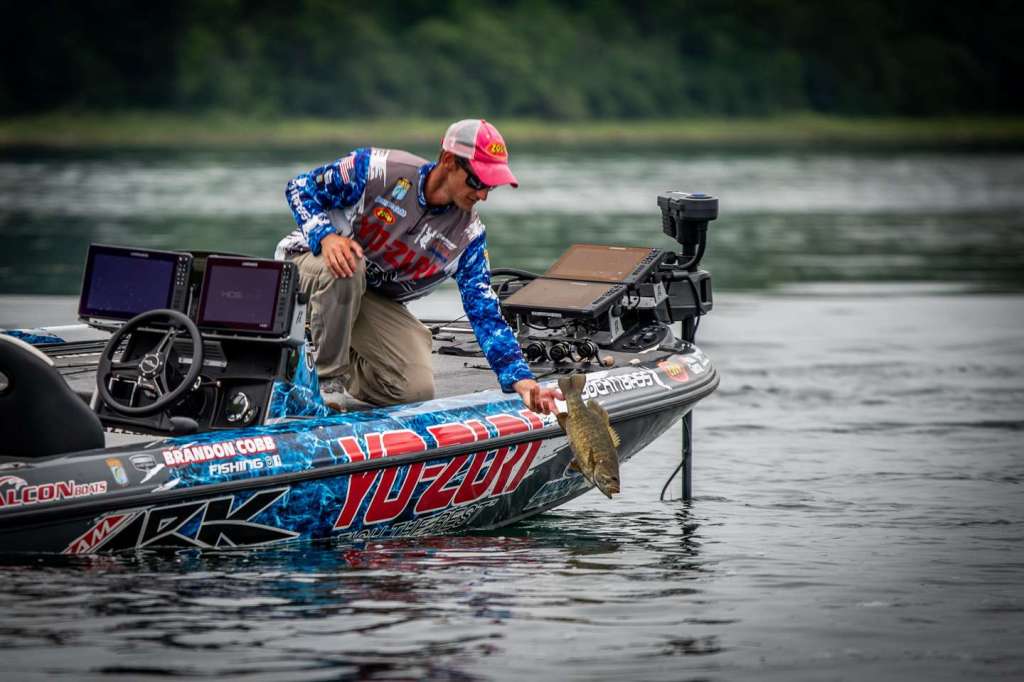
Bringing it all together
If all goes as planned, the integration of the first three Classic practice days with that final Wednesday session prompts a mental melding that yields clear direction. Variables are many, but you always want to start the Bassmaster Classic with purpose, even if you lack a Plan B.
“Really that last practice day is just sampling the clues that you’ve collected,” Palaniuk said. “The first three days, you get a look at what the fish are doing, you see the weather conditions and you form an idea of what you think they’re going to continue doing, or what they’re going to change and do.
“Then, you use that Wednesday to formulate a formal game plan because you’re going to be much closer to the event at that time, so you have an understanding of what the fish are actually going to do come Friday.”
Cobb said he’ll use his final practice day wisely, but it’s more a matter of eliminating options.
“Honestly, that Wednesday practice is really not as useful to me, because I kind of have a pretty set game plan by then,” Cobb said. “I’ll just check and make sure some fish are still doing some similar stuff. The last couple of years, I’ve used that day to check stuff that I may not go to and make sure it’s not better than I think it is.”
Felix shares this whittling down philosophy.
“It will help me draw a conclusion faster when I get there,” he said. “I can focus on fishing the best stuff first. It just makes me more efficient.”

